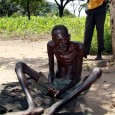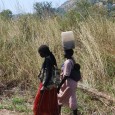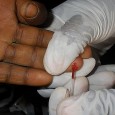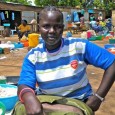Thousands of lives, many of them children, will be saved when health clinics in two remote mountain villages are equipped with microscopes to test for malaria. Countless more will be saved when more villagers sleep under insecticide-treated mosquito nets.
 The Challenge
The Challenge
Malaria, spread from the bite of an infected female mosquito, is epidemic all over South Sudan. The two health clinics Hope Ofiriha operates in Omilling and Onura do not have any equipment to test for it. When patients come to the clinics with malaria-like symptoms, they get treated for malaria. If they are sick for another reason, the misdiagnosis can cost them their life. The misdiagnosis also contributes to the spread of drug resistance and unnecessary antimalarial drug shortages. At the same time, many people in the area do not sleep under insecticide-treated mosquito nets, increasing the chance they will contract the disease.
Our Response
Our Omilling Region Malaria Project will provide urgently needed microscopes, slides, and other malaria testing supplies to the health clinics Hope Ofiriha operates in the villages of Onura and Omilling. Examining blood on a slide under a microscope is not only the gold standard of malaria diagnosis, it is cheaper than other testing methods. The project will also provide insecticide-treated mosquito nets to villagers who need them, with an emphasis on children and pregnant mothers.
Potential Long-Term Impact
The project will save thousands of lives. When parents live long enough to see their children grow up, the health outcomes of the entire family improves. When more than four out of five children live past the age of 5, more children grow into productive adults, ready to break their community out of poverty.





